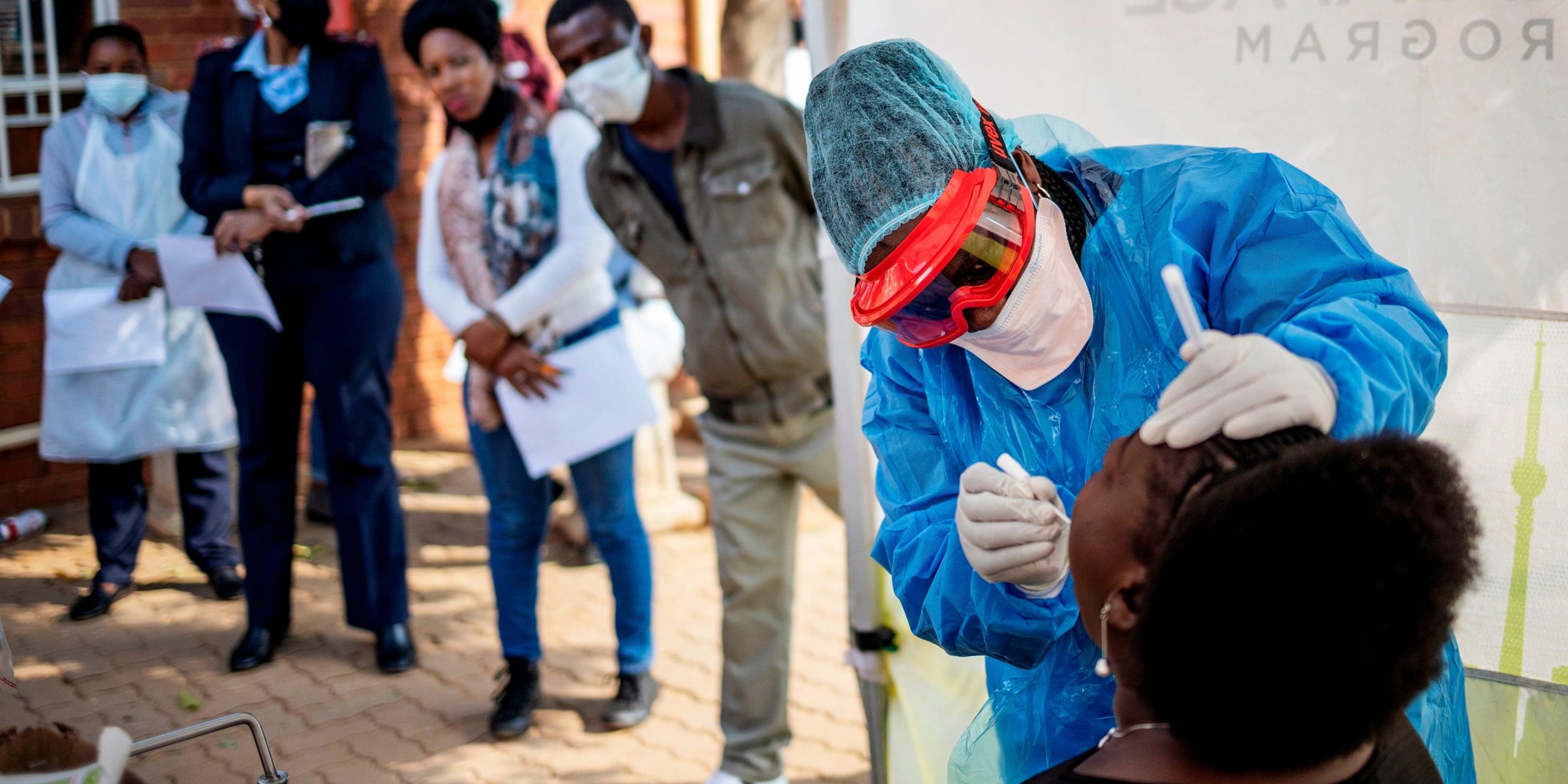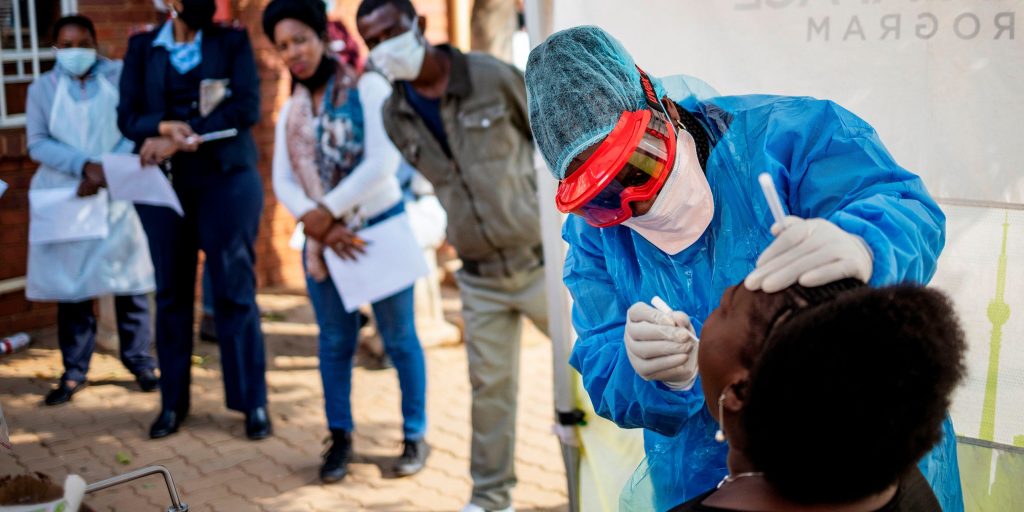
- A new coronavirus variant called Omicron has put the world on high alert.
- "It may be it's highly transmissible, but so far the cases we are seeing are extremely mild," the chair of the South African Medical Association told The Guardian.
- Scientists are still waiting on more data to determine if Omicron poses a greater public health threat than Delta.
Less than three weeks after it was spotted in South Africa, a new coronavirus variant called Omicron has put the world on high alert. News of the variant's spread sent global markets into turmoil on Friday and prompted a spate of travel restrictions across Europe, Asia, and North America.
Scientists worry the variant may be driving a recent outbreak in South Africa, where average daily cases have risen 13-fold since the first Omicron case was reported on November 9. The variant has also been spotted in Botswana, Hong Kong, Israel, and Belgium.
Omicron carries a concerning number of mutations that could help it spread, render vaccines less effective, or potentially lead to more severe disease. Preliminary evidence suggests Omicron may increase the risk of reinfection relative to other concerning variants, the World Health Organization said Friday.
But scientists are still waiting on more data to determine if Omicron poses a greater public health threat than Delta, the dominant worldwide strain.
"It may be it's highly transmissible, but so far the cases we are seeing are extremely mild," Angelique Coetzee, chair of the South African Medical Association, told The Guardian on Friday. "Maybe two weeks from now I will have a different opinion, but this is what we are seeing."
Hong Kong reported its first Omicron case last week — a 36-year-old man who had recently visited South Africa. The man was asymptomatic and fully vaccinated with Pfizer's COVID-19 vaccine in June, according to Hong Kong's Center for Health Protection (CHP). He may have passed the virus to another fully vaccinated traveler — a 62-year-old male — who did show symptoms after testing positive, the CHP reported.
Botswana's health ministry also confirmed four Omicron cases among fully vaccinated travelers in a statement on Friday. The ministry didn't specify whether the infected people had developed any symptoms, but the positive cases were detected as part of Botswana's routine screening of incoming travelers.
'We don't know yet if this new variant is out-competing Delta'
The WHO labeled Omicron a "variant of concern" on Friday — a designation given to variants like Delta that require close scrutiny from public-health officials.
But scientists are still waiting on lab studies to determine how well coronavirus antibodies — either from natural infection or vaccines — hold up against Omicron. They're also watching carefully to see how quickly the variant spreads across the globe, particularly in countries with higher vaccination rates. (South Africa has fully vaccinated just 24% of its population so far; compared to 59% in the US.)
"We don't know yet if this new variant is out-competing Delta," Katelyn Jetelina, an epidemiologist at UTHealth School of Public Health, told Insider. "We also still don't know if it will evade our vaccines yet, either."
People who have been fully vaccinated and wear masks in public indoor settings shouldn't feel compelled to change their behavior right now, she added.
"We really just need to hold tight to see how this plays out and what our next move is," Jetelina said.
